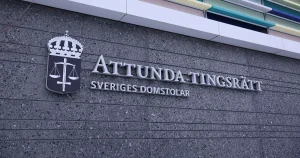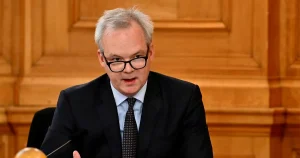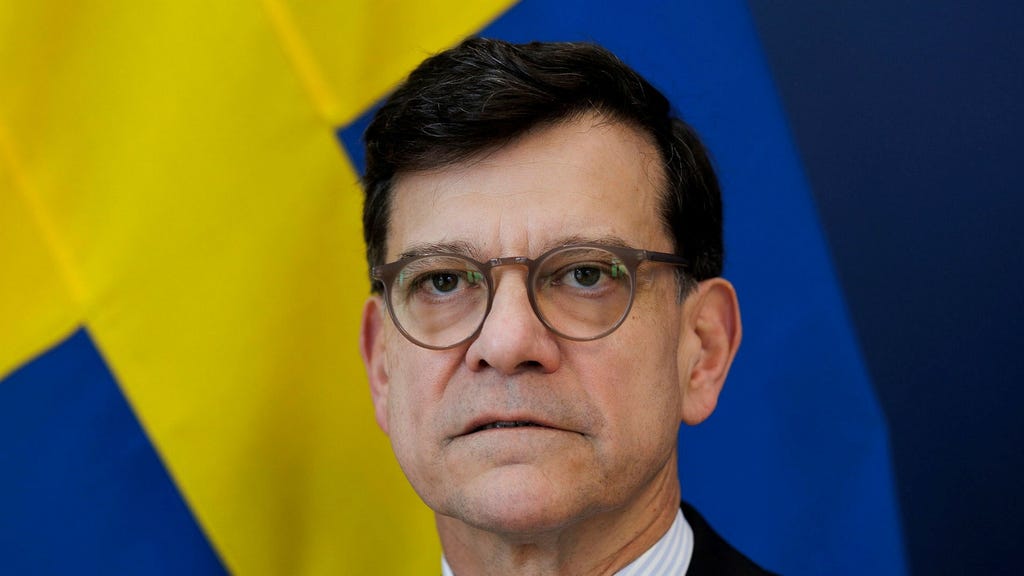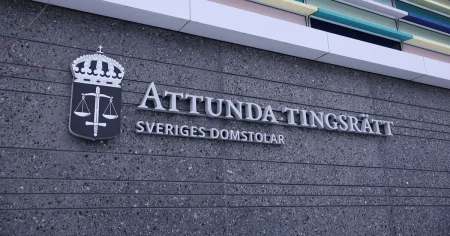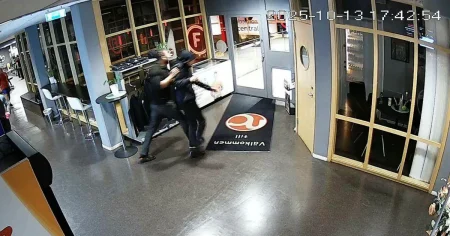The unfolding saga surrounding Henrik Landerholm, Sweden’s former National Security Advisor, paints a picture of repeated security lapses and questionable ethical conduct, raising serious concerns about his judgment and potentially jeopardizing national security. The string of incidents, initially revealed by the Swedish newspaper Dagens Nyheter (DN), began with the revelation that Landerholm had personally appointed an individual to his office without the requisite security clearance, a move potentially violating security protection laws. While the Government Offices maintained compliance with regulations, experts cast doubt on this assertion, highlighting the seriousness of the oversight in a position demanding the highest levels of security protocol.
This initial breach of protocol was quickly followed by reports of multiple instances of Landerholm’s personal negligence involving sensitive information. He reportedly left his mobile phone overnight at the Hungarian Embassy after a dinner, a potential security risk given the device’s vulnerability to compromise. This incident was compounded by another lapse where he forgot a notebook at Swedish Radio. These events, while individually concerning, began to establish a pattern of carelessness that further fueled scrutiny of Landerholm’s suitability for the role. He later admitted on social media platform X (formerly Twitter) to leaving ”a document” in a locked cabinet at the Gällöfsta conference center, claiming it was retrieved by a staff member and that the Government Offices security department was informed, with no further action taken.
The seemingly minor incident at Gällöfsta took on a far more serious dimension when DN revealed that the “document” was, in fact, four classified documents, at least one of which was security-classified, meaning its disclosure could potentially harm Sweden’s security. The fact that these documents were left unattended after a conference in March 2023, only coming to light in January 2024, raises questions about the robustness of the internal reporting and investigation processes within the Government Offices. The gravity of this revelation significantly escalated the situation, turning what initially appeared to be personal negligence into a potential breach of national security.
The situation deteriorated further when it was disclosed that cleaning staff discovered the classified documents at Gällöfsta. This revelation meant the sensitive information could be considered compromised, as it had been exposed to unauthorized individuals. This rendered Landerholm’s earlier claims of minimal risk moot, significantly undermining public trust and escalating demands for accountability. The cumulative impact of these security breaches, coupled with the potential compromise of classified information, triggered calls for a thorough investigation and raised questions about the government’s oversight of sensitive information.
The pressure on Landerholm and the government intensified further with allegations of misuse of public funds. Aftonbladet reported that Landerholm had used taxpayer money to cover a portion of his private trips to Berlin to visit his partner. While the exact nature and extent of these expenses remain unclear, the allegation added another layer of impropriety to the already mounting criticisms against Landerholm. This raised concerns not only about his judgment and respect for security protocols but also about his ethical conduct and use of public resources.
The series of security breaches and the allegations of misuse of public funds ultimately led to mounting political pressure. Peter Hultqvist, chairman of the parliamentary defence committee, demanded that Prime Minister Ulf Kristersson appear before the committee to address the matter. This request signified the seriousness of the situation and the growing demand for accountability from the highest levels of government. The accumulated weight of the revelations surrounding Landerholm’s conduct, from the initial security clearance bypass to the compromised classified documents and allegations of misusing public funds, painted a picture of repeated lapses in judgment and a concerning disregard for security protocols, ultimately culminating in his resignation as National Security Advisor.


